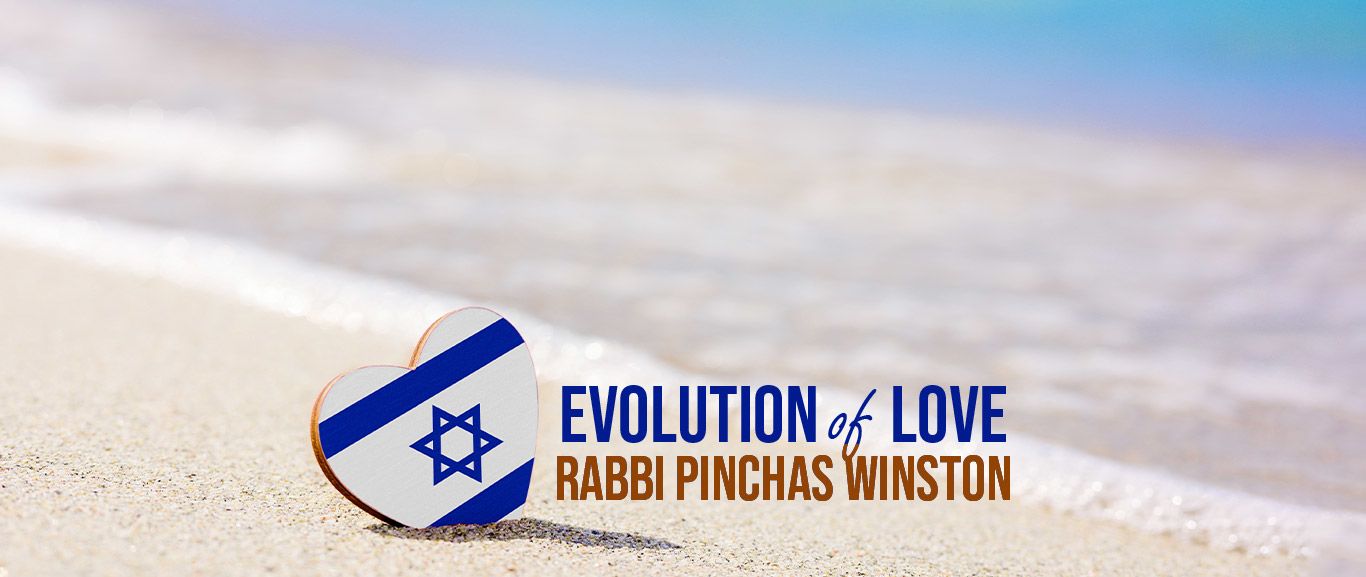
Shlach Lecha: Evolution of a Love
I wanted to feel something at the Kotel, but felt nothing. The harder I tried, the more frustrating it became. Six years later, I returned to Eretz Yisrael and experienced such a turn-around...

FRIDAY NIGHT:
:א וַיְדַבֵּ֥ר יְהֹוָ֖ה אֶל־משֶׁ֥ה לֵּאמֹֽר
ב שְׁלַח לְךָ֣ אֲנָשִׁ֗ים וְיָתֻ֨רוּ֙ אֶת־אֶ֣רֶץ כְּנַ֔עַן אֲשֶׁר־אֲנִ֥י נֹתֵ֖ן לִבְנֵ֣י יִשְׂרָאֵ֑ל אִ֣ישׁ אֶחָד֩ אִ֨ישׁ אֶחָ֜ד לְמַטֵּ֤ה אֲבֹתָיו֙ תִּשְׁלָ֔חוּ כֹּ֖ל נָשִׂ֥יא בָהֶֽם
G-d told Moshe, “Send men to spy out the land of Canaan which I will give to the Children of Israel.” (Bamidbar 13:1-2)
Every year when we reach this parshah, I feel as if we have just reached the border of Eretz Yisrael after being in Egypt for 210 years and after having wandered in the desert for 40 years. After coming to appreciate somewhat what Eretz Yisrael is supposed to mean to the Jewish people, and after seeing how many Jews don’t care for the Land as much as they ought to, if at all, it feels as if after 3,316 years we have returned back to square one all over again.
This week’s parshah is going to have a somewhat personal tone to it, since I am going to base it on the story of someone I have come to know quite well over the years: me.
On my first trip to Eretz Yisrael, I was 14 years old. It was 1974, one year after the Yom Kippur War and my parents had taken me on this trip as a post-Bar Mitzvah present. Needless to say, I did NOT enjoy the trip at all. It was an adult group trip, planned to show support for Israel, and the country was still licking its wounds. I did not enjoy the food or the accommodations, and having to visit the wounded in the hospitals was an unexpected and emotionally difficult experience for a fun-loving teenager. Overall, the trip was a rude awakening from my artificially Jewish western world and upbringing.
But I was not religious then, and becoming less so by the year. I had no UJA (United Jewish Appeal) affiliation, and Zionism never really impressed me. Indeed, the only reason why I returned to Israel six years later was because I had decided to travel to Europe and was told that travel in Israel was cheap. It was my proverbial European tour that all my friends seemed to be taking those days.
Nevertheless, I ended up in Israel first. I traveled around a bit, and eventually found my way to the Old City and the famous Western Wall. The country had changed dramatically since I had last been there, but it still wasn’t North America by any stretch of the imagination. Interestingly, I had come to like falafel since my previous trip, and the accommodations seemed to have improved since I was 14.
Once at the Wall, I sat opposite it on the hill on the other side of the Western Wall Plaza, and tried to feel something for the historical site that seemed to move so many others. Nothing. I wanted to feel something, but felt nothing, and the harder I tried the more frustrating it became. “What can a person feel for a bunch of stones, no matter how old they are?” I wondered to myself as I moved on.
Yet, I felt something, especially in Jerusalem, and it was somewhat unnerving. I wasn’t sure what it was at the time that I felt it, but it irked me. It was some kind of intensity, but not one that I was comfortable feeling. It touched me inside, and made me feel, for a lack of a better description, more Jewish than I cared to feel at the time. It made me feel like running away, which I did. Within days I boarded an Olympus Airlines jet for Greece and the rest of my trip.
What I ran away from, I wasn’t quite sure. All I knew was that as the Olympus Air plane left Israeli soil and quickly swung West, something inside me knew that I would be back again. It was very confusing. While there, I couldn’t wait to leave. Having left Israel, I seemed to be anxious to return sometime soon.
And I was right; one year later I was boarding an El Al flight back to Israel. However, what I could NEVER have known at the time was that I would be returning as a shomer mitzvot Jew on my way to a yeshivah, of all places, to learn for a year. The transformation I had undergone in one year was tremendous.
I was apprehensive at first to be returning to a country I had yet to really enjoy, a place I had no relatives to run to when feeling lonely and cut off. I had returned because I realized there was no place to advance as quickly in my Torah studies as I needed to. A yeshivah for Ba’alei Teshuvah in Jerusalem seemed to be the only reasonable and best solution at the time.
However, this time everything went differently. From the beginning of my arrival, I was happy to be in Israel and I was surprised at how much at home I really felt. Much had changed and advanced since my first trip at the age of 14, but not much had changed since the previous year that I had fled the country in haste for the shores of Corfu. Being among like-minded boys from Canada and the States in yeshivah certainly helped my transition from the North-West to the Middle-East, but it wasn’t the basis of a new relationship that began immediately between me and the Holy Land, one that makes me feel pain and like a fish out of water when I HAVE to leave her borders.
* * *
SHABBAT DAY:
:יד אַתָּ֣ה תָ֖קוּם תְּרַחֵ֣ם צִיּ֑וֹן כִּי־עֵ֥ת לְ֜חֶנְנָ֗הּ כִּי־בָ֥א מוֹעֵֽד
:טו כִּֽי־רָצ֣וּ עֲ֖בָדֶיךָ אֶת־אֲבָנֶ֑יהָ וְאֶת־עֲפָרָ֥הּ יְחֹנֵֽנוּ
You will arise and show Tzion mercy, for the time to favor her, for the appointed time will have come. For your servants have cherished her stones and favor her dust. (Tehillim 102:14-15)
This morning, as I left my home for the third time, I once again set my eyes on the beautiful Judean Hills that are opposite my front gate. Their shape is perfect, their green grass enticing, and the way they roll makes you want to run all over them with abandon. The small settlement across the way with its white houses with red tile roofs look so placid and stately, and the rows of plants and trees look geometrically integrated with the natural landscape. There is something very mystical about the whole thing.
We were late and rushing, my wife to her office and me to mine, but I could not help but stop and gape and say, “Beautiful, amazingly beautiful.” I praised G-d for it, and tried hard to absorb as much of it with as many senses as I could at one time, but fell far short. The only consolation was that it would still be there later on that day when I come home, G-d willing. Indeed, it was there at my office too once I booted up my Mac and the background screen came to life with the very same scene, albeit at sunset.
They say there is nothing worse than a reformed sinner and I am proof of that. I went from hating the land to cherishing her stones and favoring her dust, and spending a lot of time and money to convince others to do the same. Indeed, I seem to confuse many people. Those who read what I write are surprised to see my black hat and “Charedi” look. Those who see me as being Charedi are shocked and uncomfortable by my love of the land with my emphasis on aliyah at this time in history. Sometimes I seem to defy categorization.
No matter what I set out to speak or write about in the beginning, somehow it always comes back to her, the Land, our inheritance from Avraham, Yitzchak, and Ya’akov. Some 20 years later since I first came back for my one year of learning, and stayed, my love for this land has only become stronger.
Upon returning to Israel for that first year of Torah learning, the negative intensity I had felt the previous year was replaced with a new sense of calm. Somehow, in the process of discovering that Torah was not the work of men, and that Torah Judaism was not some archaic form of illogical worship, but was in fact Divinely-originated and relevant, and also my 3300-year old heritage, a spiritual and emotional dam opened up within me. The resistance had ended. The spiritual shoe had come to fit and wearing it had become a pleasure.
I remember how, when I first attended yeshivah, I had difficulty using my Hebrew name. For many Ba’alei Teshuvah, the Western name is often one of the last things to go. However, I was in Israel and at yeshivah, and I was being taught Talmud by a rabbi who could easily have been teaching at the famous Mir Yeshivah in Meah Shearim, and who came from an illustrious Torah family. He would clearly be able to refer to me by my “other name” for only so long before insisting that I answer instead to my Hebrew one. Within months, it was the most natural name to use, and as I came to identify more with it, I became less comfortable with my Western name.
By now, the Kotel experience was just that, a real experience. In the year that I had been learning it ceased to be a relic from someone else’s dead past and had become a living history book, a spiritual link that joined both a past and a future that I was very much a part of. I was learning to feel its pain and its aspirations, its disappointments and its hopes. At one point I thought that the golden dome above was a beautiful ornament for the holy site; now I knew that it was an occupier of Temple property, and a reminder that we must still work for and passionately await the final redemption.
“You can take the boy out of the country, but you can’t take the country out of the boy,” they say. But, how do you put the country into the boy if it was never there in the first place? I have wondered on many occasions how I came to love Eretz Yisrael so deeply, how my soul became so attached to its soul, given who I once was and from where I first came. And, more recently, I have wondered why this doesn’t happen for all Jews, especially those who have come to Eretz Yisrael for a period of time. There is one thing that breaks my heart more than a Jew who makes yeridah (the opposite of aliyah), and that is one who does it with relief and joy.
* * *
SEUDAH SHLISHIS:
:לח אֲנִ֗י יְהֹוָה֙ אֱלֹ֣הֵיכֶ֔ם אֲשֶׁר־הוֹצֵ֥אתִי אֶתְכֶ֖ם מֵאֶ֣רֶץ מִצְרָ֑יִם לָתֵ֤ת לָכֶם֙ אֶת־אֶ֣רֶץ כְּנַ֔עַן לִֽהְי֥וֹת לָכֶ֖ם לֵֽאלֹהִֽים
I am G-d your G-d Who took you out of Egypt to give you the Land of Canaan to be your G-d. (Vayikra 25:38)
Any Torah-believing, G-d-fearing Jew should need no more than this posuk to straighten out his or her heart. Interpret it, twist it, ignore it, do whatever you want with this posuk, but know that the Talmud understands it only one way.
The rabbis taught: A Jew should live in Eretz Yisrael, even in a city in which the majority of the inhabitants are idol worshipers than in the Diaspora even in a city in which the majority of the inhabitants are Jewish. For, one who lives in Eretz Yisrael is one who has a G-d, and one who lives in the Diaspora is like one who does not have a G-d, as it says, I am G-d your G-d Who took you out of Egypt to give you the Land of Canaan to be your G-d. (Vayikra 25:38). (Kesuvot 111a)
And, the Talmud continues:
This tells you that one who lives in the Diaspora is like one who worships idols, as David Hamelek said, “. . . For they have driven me away this day from attaching myself to the heritage of G-d to say, ‘Go worship the gods of others!’ ” (I Samuel 26:19). (Ibid)
Not bad for rabbis who lived in Babylonia around the year 500 CE. But, the Tannaim, the authors of the Mishnah (10-200 CE), were followed by the Amoraim who compiled the Talmud (200-590 CE), who were then followed by the Gaonim (589-1038 CE). This period, in turn was followed by the Rishonim, to which belonged the likes of Rashi, the Rambam, the Ramban, and Tosfos, and the First Crusade (1095-1100 CE).
Thus,Rabbeinu Chaim decided:
We are not accustomed at this time [to live in Eretz Yisrael] because of the danger along the way, and Rabbeinu Chaim says that at this time there is no mitzvah to live in Eretz Yisrael because there are many mitzvot and punishments related to the land, and we are not careful enough in performing them. (Tosfot, Kesuvot 110b, q.v. “He says, ‘Let’s go up”)
Any student of world history, and particularly of Jewish history at that time, knows exactly what Rabbeinu Chaim is talking about. There have not been a lot of periods of world history during which it has been safe to be a Jew, but the time of the Crusades was one of the worst. It was a time of either forced conversion to Christianity or of torturous death for Jews. And, at that time the Land of Israel was a jewel on the crown of any Christian conqueror. It certainly was NOT a time to encourage aliyah to Eretz Yisrael.
The question is, what would Rabbeinu Chaim have said today if he were alive at this late and remarkable stage of history?
The Vilna Gaon answered that question himself and for his students. He tried to make aliyah under adverse conditions, and greatly encouraged his most loyal students to do so after he was forced to turn around and return to Vilna before reaching his cherished goal of Eretz Yisrael. Many others have pondered the same question, and those against making aliyah don’t want to hear their conclusions.
And, regarding Tosfot’s second point about the many mitzvot dependent on Eretz Yisrael and their related punishments, there are a few points.
First, apparently not everyone holds this point of view, including all of the Gedolim of Eretz Yisrael over the last century who encouraged religious aliyah. The religious community in Eretz Yisrael is living testimony to the fact that it is certainly possible to keep the mitzvot of Eretz Yisrael, many of which are rabbinical in origin until the Temple returns.
Second, in this day and age when Torah education is as simple as the press of a button, it could be that Rabbeinu Chaim would say just the opposite.
Third, the Talmud states that accidental sins are automatically atoned for in Eretz Yisrael (Kesuvot 111a), many of which are only rabbinical in origin, compared with the sin of idol worship of living in the Diaspora, which is the most severe sin in the Torah, and for which the Diaspora does NOT automatically atone, whether performed purposely or accidentally.
However, I did not bring all of this down to put anyone on the defensive, or to prove that aliyah is the right thing for a Jew at this time, because it is not necessarily right for most Jews today. I am working on the answer to the question I asked above: How does one come to automatically love Eretz Yisrael, as if he or she was born there, lived there, and loved it all of his or her natural life? The answer, like always, is in the Talmud:
Three wonderful gifts were given by The Holy One, Blessed is He, to the Jewish people, and all of them were given through hardship. They are Torah, Eretz Yisrael, and The World-to-Come. (Brochot 5a)
Sounds simple enough, doesn’t it? Yet, the spies missed the point, and in spite of the fact that we have extended their desert wandering by thousands of years, we also still don’t get it. Is it one of those ideas that is TOO simple?
* * *
MELAVE MALKAH:
:טו כִּֽי־רָצ֣וּ עֲ֖בָדֶיךָ אֶת־אֲבָנֶ֑יהָ וְאֶת־עֲפָרָ֥הּ יְחֹנֵֽנוּ
For your servants have cherished her stones and favor her dust. (Tehillim 102:15)
How many people ever get engaged on a subway? That it has been done, I’m sure. But it is certainly not the preferred place for such a special moment for the average person for whom special does not necessarily mean unusual or strange.
Why not? Atmosphere. It is the nature of the human being and the world in which we find ourselves that WHERE we do something has a lot to say about WHAT we do. Therefore, a man is more likely to take his future bride out for a nice supper in a fancy restaurant, or do something equally special when proposing to his wife-to-be, than to ask for her hand in marriage on the five o’clock express from the city.
But WHY does it make a difference? Because, the relationship demands it. Relationship means that I care, and what I do and where I do it expresses that care, and the extent to which I care. The more special the moment, the greater the need for an expression of care. And “specialness” means doing that which is not run-of-the-mill, that which is not typical and mundane.
It also works two ways. Not only must the giver choose a special environment, but it must be that the receiver requires the special environment as well. For, imagine how a man would feel if his future finance told him, “Hey, why don’t you just give me the ring” while they are grocery shopping, or “mail it to me?”
His reaction?
“Huh? Are we talking about the same thing? I want to give you an engagement ring and you’re talking like I’m buying you a can of soda!”
And, of course, the ring is only a symbol of what he is really giving her: a life commitment to try and make her happy, just as her acceptance means that she will try and contribute to the perfection of the relationship too. In other words, what he is really saying is:
“Huh? Are we talking about the same thing? I want to give you my heart and life, and you are talking like I’m buying you a can of soda? Is that what our relationship means to you?”
And yet the spies told G-d:
“That’s okay, G-d, we’ll take Your Torah and live it right here in the desert. We don’t NEED to go into Eretz Yisrael for Torah. We’re happy to do it right here, in the wilderness.”
And G-d’s reaction:
Like the number of days that you spied out the Land, forty days, a day for a year, you shall bear your sins forty years and you will understand straying from Me. (Bamidbar 14:34)
What! Did they abandon Torah? Did they stop believing in G-d? No, they only rejected Eretz Yisroel, and for this G-d answered them thusly:
“Torah? Here? In the desert? My Holy of Holies in a non-holy environment? My symbol of My love and care for you in a place that represents anything but that? Apparently, I value My gift and love for you far more than you do! I took you out of Egypt and gave you Torah in order to bring you to Eretz Yisroel, so that I COULD BE YOUR G-D! If you’re happy and content living Torah outside of the Land, then it is not Torah you are rejecting, but our relationship.”
And, that is true for any generation at any time, whether the roads are safe or whether they are not, whether you are afraid of the extra mitzvot tied to the Land or not. For, Eretz Yisrael is far more than a land. It is an atmosphere, a spiritual reality that makes the giving and keeping of Torah special. It is a place, the Talmud says in so many places, that is so special to G-d, a place He personally monitors and takes care of.
At the age of 14, the LAST thing I was looking for was a relationship with G-d. Quite the contrary! If anything, G-d and Torah hampered my lifestyle at that time, and I hated anything that even hinted to my connection to them.
And, when I returned six years later, it was no different, except for one very important thing. I had matured somewhat, and had become more philosophical over the year. I wondered about things like the purpose of life, and had come to question the daily grind of mundane life. My mind had opened to spirituality somewhat, but not my heart, because I was still attached to my secular way of doing things.
Within the year, I had gone from thinking I was doing G-d a favor by learning His Torah, to realizing that it was a Heavenly gift to make me a better person, and eventually a better husband and father, son, etc. After a few more years of learning, particularly after learning the REST of the Talmud Bavli, and then seeing a little of what Kabbalah has to say about life in this world and in Eretz Yisrael, I had finally come to see what a phenomenal gift both were, and how vital Torah and Eretz Yisrael were to a close and warm relationship with G-d.
In short, the Talmud means G-d gave us the vehicle to build a relationship with him Torah, the place to actualize that relationship Eretz Yisrael, and the place to enjoy it forever the World-to-Come. In short, I love Eretz Yisrael because I love Torah and G-d, and the three just seem to go together so naturally. And thus the posuk says:
You will arise and show Tzion mercy, for the time to favor her, for the appointed time will have come. For your servants have cherished her stones and favor her dust. (Tehillim 102:14-15)
It is talking about the Final Redemption, and it is revealing that it is dependent upon our cherishing the stones of Eretz Yisrael, and favoring her dust. The Midrash already indicates that the vast majority of Jews will NOT make aliyah until after Mashiach comes. But the posuk, the Talmud, and so many commentaries emphasize one that must be consistent among ALL Jews in advance of his arrival, indeed even to trigger it: We must cherish her stones and favor her dust.
If we don’t, others will, and we are seeing the consequences of THAT right now.
***
Pinchas Winston is the author of over 95 books on various topics that deal with current issues from a traditional Jewish perspective. He has also written on the weekly Torah reading since 1993, called “Perceptions,” as well as on current topics and trends affecting Jewish history, past and present. One of his missions is to make the depth and beauty of the more mystical teachings of Torah understandable and accessible to those who can really benefit from them. Visit his website at thirtysix.org.


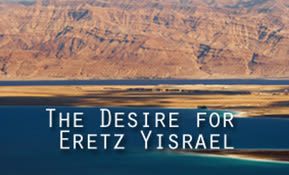
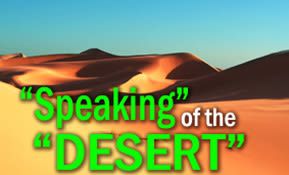
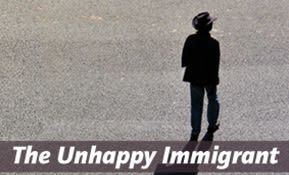

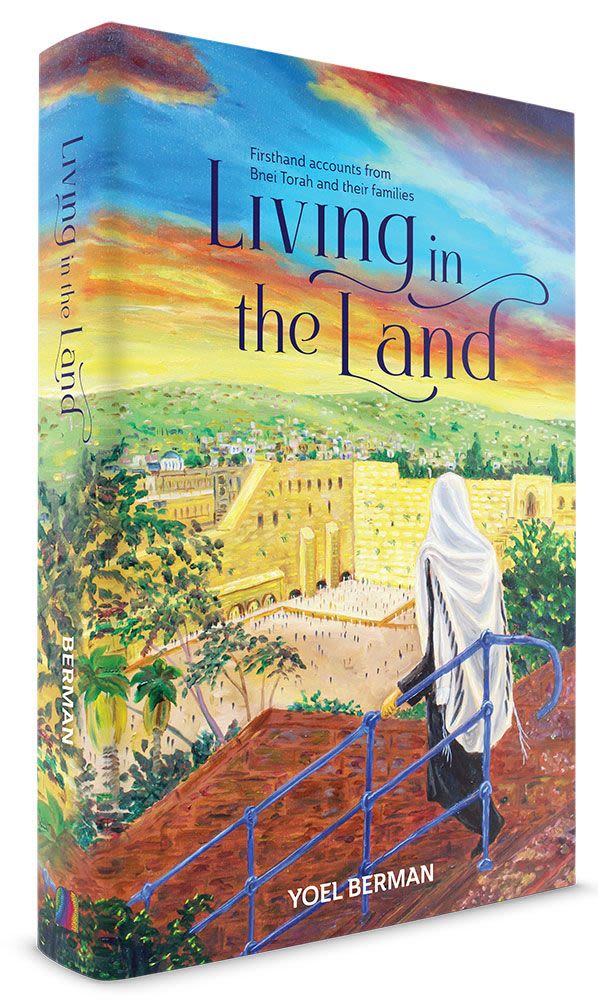
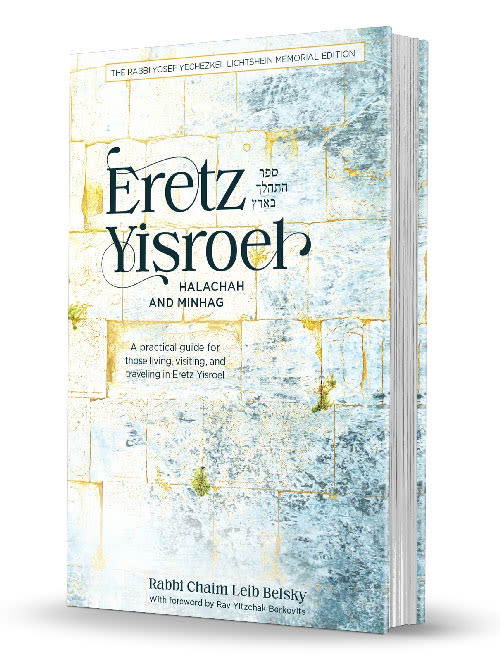
Tell us what you think!
Thank you for your comment!
It will be published after approval by the Editor.